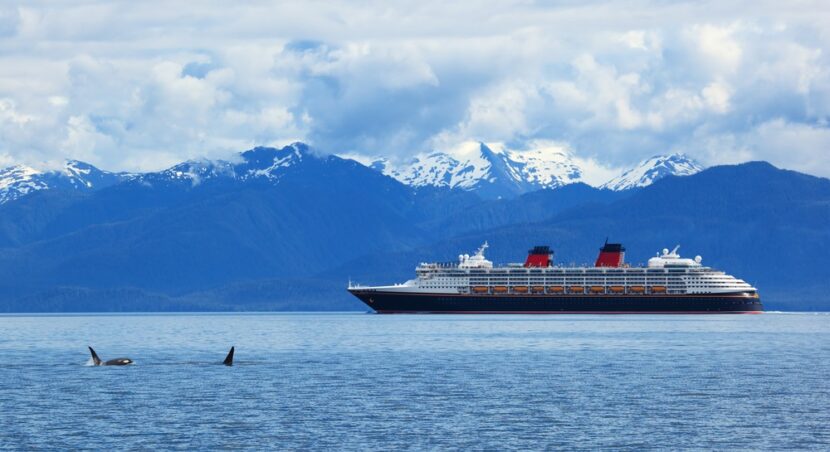TORONTO — Temporary measures have a way of becoming permanent.
With that in mind ACTA is joining CLIA and the Tourism Industry Association of British Columbia (TIABC) in their advocacy efforts urging the federal government to protect the future of Canada’s West Coast Alaska cruise program.
When Canada’s cruise ship ban in place was first extended to Feb. 28, 2022, a U.S. congressional committee suggested cruise ships could sail Canadian waters without disembarking (or embarking) passengers at Canadian ports.
Now another possible solution, put forth in early March by two U.S. senators, could shut Canada out of the Alaska cruise season completely – and potentially jeopardize every sailing season going forward, says ACTA.
WHY ONE FOREIGN PORT MAKES ALL THE DIFFERENCE
Ships with non-U.S. registry can’t embark and disembark passengers at more than one U.S. port – unless the itinerary also includes a distant foreign port.
Most U.S. cruise lines register their ships with non-U.S. registry – like in Panama – so they’re subject to this rule.
It’s all part of the U.S. Passenger Vessel Services Act (PVSA).
On Caribbean and Med cruises, with so many ports in so many countries, it’s not a problem.
For the U.S. cruise lines with non-U.S. registered ships, where things get tricky is with Alaska cruises – and Hawaii cruises too, for that matter. The ships need at least one non-U.S. port. It’s because of the PVSA that Hawaii cruise itineraries are so often repositioning cruises that sail out of Sydney, Australia or Vancouver.
One of the only major U.S. cruise ships with U.S. registry is NCL’s Pride of America, able to sail all-Hawaii itineraries without the need for a foreign port. The ship is registered in Honolulu.
SAVING THE ALASKA CRUISE SEASON COULD SPELL TROUBLE FOR CANADA
ACTA reports that two U.S. Senators, Lisa Murkowski and Dan Sullivan, both from Alaska, are working to save the Alaskan cruise industry with new legislation, The Alaska Tourism Recovery Act.
If passed, the Act would allow cruise ships to sail to Alaska without requiring a stop in Canada.
ACTA President Wendy Paradis says ACTA and the cruise line industry support the health and safety of Canadians being paramount, adding that as vaccines roll out across Canada and the U.S., i’s crucial that the infrastructure for cruising remain intact for the future, and at the same time allow for the potential of sailings later in 2021.
The workaround to the PVSA as proposed by the Alaska senators could gravely impact the future of the cruise line industry in Canada, she says.
“We are very concerned that this temporary change to the U.S. Passenger Vessel Services Act could become permanent,” said Paradis.
Paradis adds: “At the very minimum, in 2021, the Canadian government should allow an operational or ‘technical’ stop in Victoria to satisfy the Jones Act and thus allow Seattle-based Alaska cruises to run this season, with the required stop in Canada. It keeps port operations continuing and will allow for a more expeditious start when the cruise ban order is lifted.”
“DEVASTATING IMPACT”
If cruise ships are no longer required to call at Canadian ports, “this may have a long term and devastating impact on the B.C. economy and the Canadian travel industry.”
In 2019 the positive economic impact to B.C. from the Alaska cruise season was $2.72 billion and 17,384 jobs.
ACTA recently discussed the economic impact of the cruise ban to the BC economy with MP Tako Van Popta, for Langley – Aldergrove, BC. MP Van Popta raised this point –and the risk of U.S. workarounds — directing questions to the Minister of Transport during the March 9, 2021 Question Period in the House of Commons.
Paradis points out that any amendments to the U.S. Passenger Vessel Services Act would also have significant and negative impact to the East Coast – Atlantic cruise market as well.
The overall economic impact to Canada (including the Atlantic cruise line industry) is $4.278 billion – direct and indirect.
“This economic impact also includes the loss to travel agencies, travel agents and independent travel agents and is another important issue that underscores the urgent need for the governments to start working with industry on a roadmap to recovery that will protect jobs and the Canadian travel industry infrastructure,” said Paradis.

